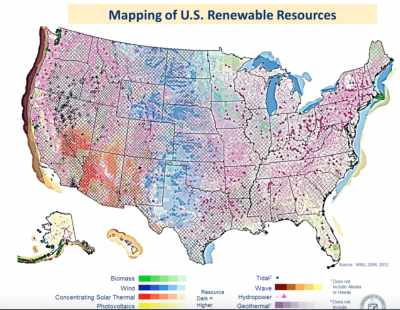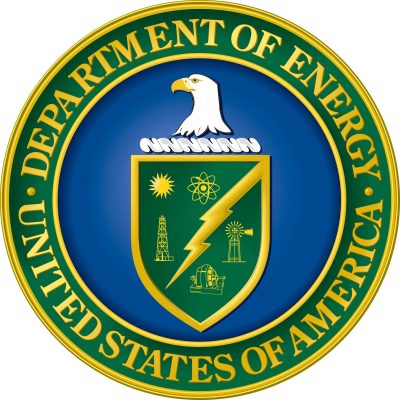The U.S. Department of Energy (DOE) hosted a “Regional Energy Technology Innovation” webinar in late September inviting leading research universities to present their findings examining the clean energy technology innovation in their respective regions.
 The universities held forums earlier this year and each forum was attended by leaders from federal, state, and local governments; industry, DOE national laboratories; academia; and nongovernmental organizations.
The universities held forums earlier this year and each forum was attended by leaders from federal, state, and local governments; industry, DOE national laboratories; academia; and nongovernmental organizations.
The forums highlighted the differences among regions in terms of their energy needs, resources, and vulnerabilities; customer demands, markets and capabilities. A key conclusion of the regional forums is that clean energy solutions must be tailored to meet regional needs.
These forums were held in part of DOE’s “Mission Innovation.” Mission Innovation is a multinational initiative to dramatically accelerate public and private global clean energy innovation that was announced at the United-Nations climate-change conference in Paris on November 30, 2015.
 During the webinar, six different regions of the U.S. including the mid-atlantic, southwestern, northwestern, northeastern, midwest, and southeastern made presentations and spoke about the key takeaways, opportunities, priorities, challenges and next steps within their regions to achieve the driving force needed for maximum clean energy technology innovation.
During the webinar, six different regions of the U.S. including the mid-atlantic, southwestern, northwestern, northeastern, midwest, and southeastern made presentations and spoke about the key takeaways, opportunities, priorities, challenges and next steps within their regions to achieve the driving force needed for maximum clean energy technology innovation.
The southeastern presentation was done by the University of Tennessee at Knoxville. The university’s vice chancellor of research and engagement, Dr. Taylor Eighmy, spoke about how the southeast’s area of expertise involved government-university-industry-national lab collaboration as well as rapid innovation and tech to market movement.
Dr. Eighmy said some of the major opportunities for the southeast include supportive state governments and a supportive investment community and innovator ecosystems. The southeast also has a strong industrial influence and their supply chains are beneficial.
According to Dr. Eighmy’s presentation, some of the main priorities and clean energy research and development focus areas for the southeast include advanced manufacturing, integrated grid management, bio-derived fuels and CO2 capture, nuclear energy and sustainable smart communities.
However, one of the greatest challenges the southeast faces in terms of advancing clean energy technology innovation is a need for improved business processes focusing on the speed of connecting industry to science and technology.
As the southeast moves forward, it will direct strategic collaborations tied to regional innovation needs, workforce needs, and especially innovation accelerators and private/foundation investment efforts in the clean energy technology space.
